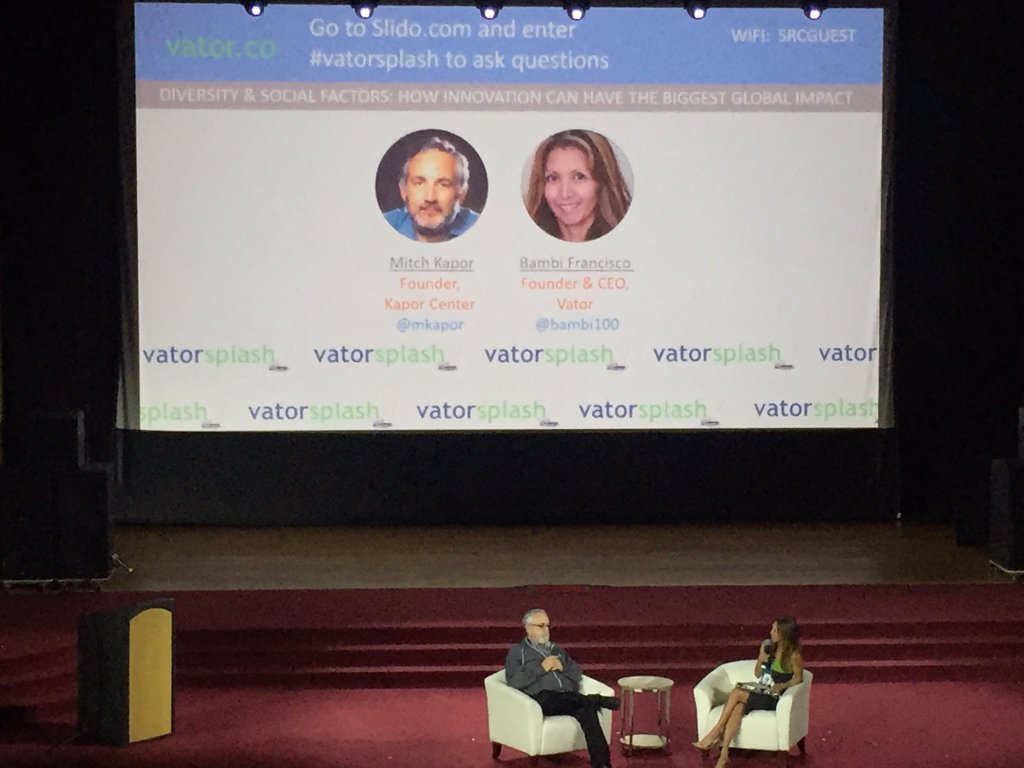
We kicked off Vator Splash Spring this morning with a fireside chat between Mitch Kapor (co-founder of the Electronic Frontier Foundation, Kapor Center for Social Impact, and Kapor Capital) and Bambi Francisco (Founder and CEO of Vator).
In a long, timely discussion about the relationship between technology and social impact, the conversation inevitably steered toward Uber—both the largest private tech company in the world and one that has been both praised and condemned for its impact on society.
For background, Kapor said he invested in Uber in 2009 (the year it was founded), which was before the founding of the Kapor Center for Social Impact. So Kapor and his team hadn’t quite formalized their approach to investing in companies that produce positive social impact.
“You could spend an entire day” discussing Uber’s social impact, said Kapor, who said the company has obviously produced “tons of positives and negatives.” Off the cuff, one need only think of the drivers: while Uber insists that they’re paid well and enjoy the incredible advantage of working whenever they want, drivers and activist groups claim the ridesharing company doesn’t pay a living wage.
Kapor put it bluntly when he said Uber is “a great second job, but not a great primary source of income.”
In other words, no one is going pay the rent or raise a family simply by driving for Uber. It’s fantastic for its flexibility, as the company repeatedly insists, but that’s only helpful if you’re a student or parent who needs a supplementary form of income. And it’s also helpful if you have a busy schedule and value the ability to work at your own hours.
“That said,” continued Kapor, “drivers continue to be squeezed,” especially as Uber has engaged in turf wars around the world against other major ridesharing companies, like Lyft in the U.S. As the two companies battle for control of the market, they recruit as many drivers as possible and offer riders deep discounts, minimizing income for drivers to the lowest possible level.
So the benefit of all that job creation gets washed out by the fact that the jobs don’t pay a living wage. Thus, complicating the social impact of Uber.

Given all this complexity, Kapor says his investment in Uber has been an “enormous learning experience,” and one that has been reflected in on-demand investments he makes post-Uber. One example of a Kapor Capital portfolio company focused on this space is Honor, an online service that connects in-home caregivers with seniors and their families.
In the end, Kapor says his firm “looks for companies in the on-demand marketplace that will create a large number of good jobs.”
Key word: “good.”
Thanks to our amazing top-tier Splash Spring 2016 sponsors: KPMG, Javelin Venture Partners, SAP Startup Focus Program, Bread and Butter, Kapor Center for Social Impact, Lyft, Avison Young, Tubemogul, Wendel Rosen and Dictionary.com.


















